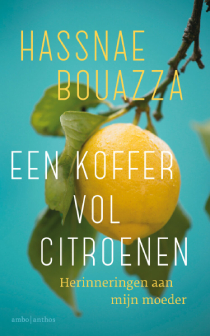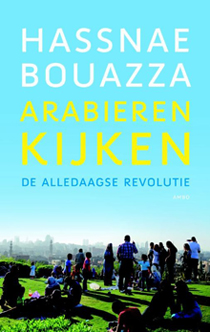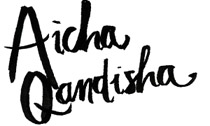Gezellig
Peter Breedveld

In this first of my new series of English-language blogs about the state of the Netherlands I would like to tackle a problem I have been thinking about for some time now. It is about the translation of the Dutch phrase ‘gewoon gezellig‘.
‘Gewoon gezellig‘, in my view, perfectly captures the essence of what The Netherlands is about. If you want to understand the Dutch and their culture, it is absolutely crucial to fathom the meaning of ‘gewoon gezellig‘.
Compulsory nature
I cannot think of a literal translation of ‘gewoon gezellig‘ that does its meaning justice. ‘Gewoon‘ means ‘usual’ or ‘common’ or ‘just’ but also ‘normal’, although there’s a Dutch word for ‘normal’: ‘normaal‘. ‘Gezellig‘ means ‘cozy’. Dutch people often say that ‘gezellig’ is a unique Dutch word, untranslatable in other languages but that is utter nonsense. What they mean is that no people on earth knows how to have fun, proper fun, like the Dutch do.
I am not a native English speaker, but it appears to me that people say ‘cozy’ when the atmosphere is pleasant, when everyone is in a good mood and feels comfortable in each others company. In Moroccan Arabic there is a similar word: nashaat, the Germans say gemütlich and the French chouette.
So I see no difference in meaning with ‘gezellig‘, but I do understand why Dutch still say there is no translation for the word in other languages. There is an aspect of Dutch coziness (‘gezelligheid‘) that I have never noticed in other cultures and that is the compulsory nature of it. ‘Gezellig‘ is inescapable, you may not excuse yourself from it. There is no freedom of choice when ‘gezellig‘ is involved. When a Dutchman says ‘gezellig‘ it means something is expected of you. You have to join in to avoid the risk of being considered a spoilsport, a party pooper, an antisocial.
Virus of xenophobia
Hence the phrase ‘gewoon gezellig‘ which literally could be translated as ‘just cozy’, but which in Dutch is almost a pleonasm. ‘Gewoon‘ is what everybody does, and which is therefore the right thing to do in Holland. Anything different from gewoon is the wrong way. The Dutch have a saying: ‘doe maar normaal, dan doe je al gek genoeg‘; act normal, which is crazy enough.
‘Gezellig‘ is also what everyone does and thus the right thing to do. Gewoon gezellig is to join in without nagging. Gewoon gezellig characterizes the Dutch ambivalence to foreigners and immigrants. The Dutch are very welcoming to foreigners, although lately they too have caught the virus of xenophobia that rages through Europe, but in general I think it cannot be denied that the Dutch really love foreigners. BUT. The foreigners have to adapt, they have to assimilate, they have to become Hollanders. But the Dutch will never admit to it. They will not easily say ‘assimilate’ because they don’t find that gezellig. They’ll tell you you have to join in the coziness, their coziness. You have to participate ‘gewoon gezellig‘.
Do as the Romans do
The Dutch cannot imagine how one would choose to do anything other than the Dutch way. They understand that you, as a foreigner, have learned to do things in another way, a not Dutch way. But that was before you learned about the Dutch way. Why would you not do things the Dutch way once you know there is a Dutch way? Everybody in The Netherlands does it the Dutch way! To not go the Dutch way is to exclude yourself from the rest and that is not gezellig.
Actually you are rejecting the way the Dutch do things, the way your welcoming hosts do things and that is almost an act of aggression.
Even when the Dutch visit other countries, they expect the foreigners, meaning the people who live in the countries visited by the Dutch, and who have been living there for centuries, millennia perhaps even but who are still foreigners because they are not Dutch, they expect these foreigners living in their own foreign country to quickly adapt to the Dutch way. The English say ‘When in Rome, do as the Romans do’ but to the Dutch that sounds like the ranting of a lobotomized peacock. When in Rome, make the Romans do as the Dutch have always done, because otherwise it is not gezellig.
The Dutch understand that Romans have always done things the Roman way, but that was because they had not heard yet of the Dutch way. Now that the Dutch have arrived, that will soon be a problem of the past.
Black Pete
‘Gewoon gezellig‘ has also dominated the controversy around Black Pete. Black Pete is a folkloric figure the Dutch have been enjoying for the last hundred and fifty years or so, never paying any attention to people protesting the racist aspects of it. But these past years, with the black part of the Dutch population growing more vocal and gaining more leverage, the debate about the racism of Black Pete could no longer be avoided, with even the United Nations interfering.
The Dutch were flabbergasted. They saw their beloved Black Pete compared to the American (banned) practice of blackface and the British (also banned) racist caricature Golliwog. “No! No!” they yelled, “Black Pete is not racist because we love Black Pete and how can a figure we, the tolerant Dutch who fought Nazism and Apartheid and who freed Indonesia from the Japanese, love so much, possibly be racist?”
And although Black Pete involves painting the faces of white Dutchmen black so they look like a caricature of a black person, a Dutch person will never accept Black Pete is the same as blackface simply because blackface is not Dutch but American and Black Pete is Dutch and the Dutch are not racists like the Americans so Black Pete is not racist either.
Civil war
The Dutch thought they had proof for Black Pete not being racist in the shape of black Dutchmen who had always joined in on the fun of Black Pete. “See, they have always participated gewoon gezellig“, they said. It dominated the debate about Black Pete for a while: ‘gewoon gezellig‘. They never nagged about Black Pete, so why would you? Black Pete is not racist, because he is a black figure who is friendly, so he is the opposite of racist. Now stop nagging about Black Pete and join us ‘gewoon gezellig‘.
By now it has become pretty clear to many Dutchmen that few black people ever gewoon gezellig joined the festivities around Black Pete. They just never said anything from fear of being considered antisocial, anti-Dutch, spoilsports. Being Dutch themselves, these black people know all too well the Dutch do not handle criticism gracefully. It is not gezellig and it means war, and that is the state the Netherlands seem to be in when you read the opeds and editorials in the newspapers and the talk shows on tv: that of a civil war or at least the eve of one.
Because a large group of young black people, allochtonen, as they are called in Dutch, decided to no longer do the gewoon gezellig thing.
If all readers of Frontaal Naakt, the only true dissident voice in The Netherlands, donate two euros a month, the fine people who make this website would be financially independent! Bank account number NL59 RABO 0393 4449 61 (N.P. Breedveld, Rabobank Rijswijk), SWIFT BIC RABONL2U reference ‘Frontaal Naakt’. No PayPal since PayPal froze our account because of the pictures of nude people on Frontaal Naakt.
English, Peter Breedveld, 13.07.2014 @ 14:03
30 Reacties
op 13 07 2014 at 14:40 schreef Phillipe St. Germain:
Is that really a specific Dutch trait Peter? It appears to me that every group of people anywhere displays similar behaviour. But perhaps you should ask an antropologist or a sociologist.
op 13 07 2014 at 14:44 schreef excellentie zwembad:
First of all ‘gezellig’ is not cozy. For Cozy we have the dutch wordt ‘knus’ Gezellig derived from the middle dutch word ‘Ghesel’= friend . So Gezellig can be translated as friendship-like.
Its a state of being together among friends . however even a house can be ‘gezellig’ that meens that the house has comfort and niceness; a good place to feel at home .
Being in a friendly enviroment .
Second . Black Pete is not a dutch figure it is european . Most country’s in europa have one and mostly he is also black . Smutzli in switserland , piere foutard in france etc.
The difference is he is mostly known in rural areas and often has horns of looks like a monk. everywhere he also has a bag and a rod just as the dutch black pete.
He is ment to be a demon NOT a black guy .
Worried parents in the Netherlands took this evil away from the character so now he’s just a nice demon .
op 13 07 2014 at 14:50 schreef Kiske:
Gedeeld met mijn Noorse en Canadese vrienden!
op 13 07 2014 at 15:04 schreef Gerard:
Good article and very recognizable.
My American wife is every time amazed when I automatically respond to something she does with: “Yes, but we Dutchies allways do things this way”. Which to her is felt like patronizing and putting down her learned cultural values.
I never realized that untill she pointed it out. An eye-opener.
op 13 07 2014 at 15:14 schreef Haes:
This is a nice analysis of the frase “gewoon gezellig”. It tells it all.
op 13 07 2014 at 16:42 schreef Probeertesnappen:
Het lijkt alsof dit stuk een poging is gewoon gezellig te duiden, maar al snel blijkt het Nederlanders als volk te veroordelen en dat te koppelen aan zwarte piet. Je mocht er nooit wat van zeggen, want dat is ongezellig.
Volgens mij zijn Nederlanders niet heel anders dan andere volken. Een behoorlijke groep is zelf-referentieel, zeker in eigen land. Goh. Zie je dat niet ook in de VS, Engeland, Turkije, Italie, Indonesie, Israel, Mexico (WK nog)? En ook hier, bij Antillianen, Surinamers, Marokkanen en Turken. Vrouwen kunnen er trouwens ook wat van als ze over mannen praten en oordelen. Niks menselijks is ze vreemd.
Maar goed. Een deel van de Nederlanders (of doen we het allemaal?) oefent druk uit op anderen om hun traditionele feest te kunnen blijven vieren in een snel veranderende wereld.
Waarom ligt de lat voor Nederlanders zo hoog? Waarom die woede, dat ongenoegen, dat oordelen?
Die pietdiscussie is welles/nietes geworden. Dus winnen of verliezen. Het is maar wat je wil. Van mij mogen ze piet aanpassen, maar ik wil inmiddels wel een brede discussie over slavernij door al het zelfingenomen oordelen: rol Arabieren, West-Afrikanen zelf (wie verkocht ze?), et cetera.
op 13 07 2014 at 17:36 schreef Sacha:
Je kunt fantastische “weg met ons” artikelen schrijven, dat moet gezegd worden.
Zo, nu kun je los gaan over hoe mijn reactie jouw artikel onderschrijft.
op 13 07 2014 at 18:28 schreef Probeertesnappen:
‘Weg met ons’, maar dan zonder Peter en een paar van zijn soortgenoten, want die zijn zo anders, dat ze niet meetellen.
Wat een analogie trouwens met Marcouch en Aboutaleb en dat soort types. Die zijn zo scherp op hun afkomst-groep, dat de achtergrondgenoten denken: je bent tegen ons.
op 13 07 2014 at 19:32 schreef excellentie zwembad:
@porbeerttesnappen
het is hetzelfde als wilders die zegt dat mohammed een pedofiel is
op 13 07 2014 at 20:40 schreef machiel:
Ik geef enerzijds “Probeertesnappen” gelijk. Je moet bij de meeste Spanjaarden ook niet aankomen met kritiek op stierenvechten (behalve bij Catalanen natuurlijk, want die vinden alle kritiek op Spanje geweldig, maar die vinden het weer niet leuk als je klaagt over “Correbous”).
En toch, er is iets typisch Nederlands aan die combinatie van enerzijds zogenaamde tolerantie en anderzijds het onvermogen om met kritiek om te gaan. Je bent goed op weg, en “gezellig” is zeker een belangrijk ingredient aan dat typisch Nederlandse waar alle buitenlanders die ik ken (Engelsen, Duitsers, Spanjaarden, Catalanen) kriegel van worden.
op 13 07 2014 at 20:50 schreef machiel:
(na er nog even over nagedacht te hebben), ik denk dat het die op niets gebaseerde superioriteitsgevoelens zijn, “kijk eens hoe gezellig wij zijn, leuk hé?”, zonder zich maar een moment te kunnen voorstellen dat er wellicht andere culturen zijn die zich veel beter vermaken dan Nederlanders (en dat kan ik op een briefje geven: Spanjaarden vermaken zich stukken beter dan Nederlanders, en ik denk Engelsen ook), waarin Nederlanders zich zo belachelijk maken. Die halfslachtige poging zich te rechtvaardigen door een middelmatig vertoon van “gezelligheid” die niet veel verder komt dan een tweede biskwietje bij de thee, want hé, laten we ook eens uit de band springen. En dan door de mand vallen als er serieus aanmerkingen worden gemaakt, zoals met Zwarte Piet.
op 13 07 2014 at 21:05 schreef Mart:
And of course there they are, the machiels and Probeertesnappens of this world, who cannot engage with the argument but by using the same tired ‘Yeah, but what about them?’ response.
Get it into your thick heads, you wankers: it is not about the Americans, the Spaniards, the ancient slave-selling Arabs. We’re talking about the immense social pressure in Dutch society.
If you can’t address the subject, then shut your bloody gob, alright?
op 13 07 2014 at 23:07 schreef Probeertesnappen:
Haha Mart. Als iets typisch Nederlands is, is het met de vinger wijzen. Elkaar de maat nemen. En dan altijd een paar Nederlanders die denken dat objectiviteit hetzelfde is als heel kritisch zijn. Dat je dan verstandiger bent, beter dan de rest.
Als jij per se alleen naar Nederlanders wil kijken: vooral doen. Maar waarom? Waarom is het zo belangrijk om Nederlanders eruit te pikken en ze de maat te nemen? Wat is er op tegen om uit te zoomen en te zien dat het hebben van irritante en foute trekken universeel is?
Denk je echt dat veel anderen dat niet zien? Ze maken er gewoon minder een punt van.
op 13 07 2014 at 23:54 schreef Dirk:
De Lama’s, ik hou van Holland, 1 tegen 100, Cojones, al die benefiet dingen enz.
op 14 07 2014 at 00:32 schreef MNb:
The funny thing is, PB, you go to quite a length to show that “gezellig” has a specific Dutch meaning indeed. Of course it’s with some examples very easy to explain to other nationalities what “gezellig” means. Refer Germans to the Oktoberfeste of Munich, the Americans to a nice, harmonious, indeed cozy atmosphere at Thanksgiving Dinner. The ones I have met weren’t capable to provide an exact translation.
They usually also are aware of the negative implications. Hans Helmut Kirst uses the word “harmonious” for it, invarably in a negative context.
Example. One specific reason I never want to live in Assendelft is because of the social pressure to watch matches in company of the neighbours – because “gewoon gezellig”.
Don’t think so. I want to make that decision myself, not have decided for me.
op 14 07 2014 at 00:32 schreef SIGILIX:
@Machiel
“En toch, er is iets typisch Nederlands aan die combinatie van enerzijds zogenaamde tolerantie en anderzijds het onvermogen om met kritiek om te gaan.” – we noemen dat hypocrisie.
op 14 07 2014 at 08:27 schreef Thomas E:
There is also a sneaky side to “gewoon gezellig”. The street barbecue with Turkish and Moroccan neighbours was “gewoon gezellie”, but in the anonymity of the voting booth they press the PVV button.
op 14 07 2014 at 08:33 schreef Probeertesnappen:
MNb
Kirst duidt iets dat je in veel gemeenschappen in verschillende vormen tegenkomt: meedoen/harmonie-druk.
Of en de mate waarin je je daar lekker bij voelt is zeer persoonlijk.
Als je je er lekker bij voelt, in een bepaalde context, valt het minder op en is het eigenlijk wel prima. Het geeft eh harmonie?
Ik kom oorspronkelijk uit een klein dorp in Gelderland. Ook een hoop bemoeienis en druk. die meestal niet prettig was voor mij. Ik heb overigens wel vaak zelf gekozen, maar de gemeenschap ontlopen beviel uiteindelijk beter.
op 14 07 2014 at 08:51 schreef Mart:
@Probeertesnappen
First, Peter wrote this in English for an international audience. Why can’t you show some elementary respect by keeping your answers in English?
Second, of course I want to restrict the conversation to Dutchmen and the Netherlands, because that was what Peter’s post was about.
You show yourself to be the archtypical cloggie, not a modicum of respect for anyone but yoruself.
To go back to Peter’s post, a prime example is the World Cup. The populace got told that 16.8 million would cheer on our national team, except for ‘a few football-haters’
Nice to know that I am apparently a football hater because I don’t want to cheer on a team that’s playing in a style I don’t like. I am not being ‘gewoon gezellig’, so a national newspaper is telling me I’m a hater.
op 14 07 2014 at 10:45 schreef Probeertesnappen:
You are telling me: ‘You show yourself to be the archtypical cloggie, not a modicum of respect for anyone but yoruself.’, on basis of a few posts here. Go look in the mirror, check your stereotypes and if you try enough to look for alternative explanations, be curious, before you judge others. Is self righteousness typical Dutch? Is it typical Dutch not to ask friendly and with respect? Than you are one for sure.
op 14 07 2014 at 11:33 schreef Mart:
@Probeertesnappen,
Someone who starts his entry into the discussion with an attempt at shifting the goalposts does not deserve anything but scorn.
You don’t like it? Adjust your behaviour accordingly.
op 14 07 2014 at 12:34 schreef marcodebaar:
The bottom-line of the blog is that, in spite of the conception the Dutch have of themselves (free, tolerant, easy going etc.), the freedom to deviate from what is conceived to be the common denominator is limited. Arguably, there is significant tension between the “inclusive gezellig” (join in, let’s have fun) and the “exclusive gezellig” (how dare you question my notion of gezelligheid).
What you think of the event, is one thing (I disapprove of it by the way), but recent events have shown that criticizing the event will lead to harassment of the worst kind. Therefore, I can only agree with PB’s point of view.
op 14 07 2014 at 13:39 schreef Probeertesnappen:
I can’t adjust and be ‘gewoon gezellig’ in your perspective in this discussion. I follow Peters point, agree if I adjust, but it is too narrow to me.
op 14 07 2014 at 16:11 schreef machiel:
@Mart Maybe next time you can read what I actually wrote before reacting? And I’m only one person, so machiel without an “s” at the end is enough to address me.
Since this article is about “what is typical Dutch”, it’s inevitable to compare that with what’s *not* typical Dutch. That’s what you normally do when you define something: you compare it with something different.
op 14 07 2014 at 18:38 schreef wiske:
Although “gezellig” is a dutch word, in our familie it was never used, I think its possibly Petty Booshwah (peti’bourgeois).
dem wi’ side wid oppressah
w’en di goin’ get ruff
side wid aggressah
w’en di goin’ get tuff
https://www.youtube.com/watch?v=AjfCRIPTJJQ
op 14 07 2014 at 21:58 schreef Mart:
@machiel,
Your first post started with the standard “Yes, but what about them” fallacy. Forgive me if I don’t take subsequent protestations of you agreeing with Peter seriously. It smacks of “I am not A, but B…” (e.g., as in “I am not racist, but…”), which is a red flag to anyone in these kinds of debate.
Your second post wasn’t up when I posted my reply.
I am quite willing to take a step back from my criticism towards you, but I maintain in either case that the way you worded your first post was not smart, it was an invitation to attack.
op 14 07 2014 at 23:26 schreef antiloop:
This article actually provides some unique insights into Dutch society seldom seen anywhere else.
The keyword here is reflection. The ability to take a step back in order to look upon our own behavior in relative objectivity.
I believe the word ‘gezellig’ is ultimately a control instrument for the dominant narrative. A wolf disquised as a sheep amongst words. A word that poses as an all inclusive description of group atmosphere, but simultaneously serves as an exclusive mechanism when used in a dominant, negative way.
It is essentially the very same mechanism that is misused in the Sinterklaas festivities, because after all, even though the sinterklaas festivities are said to be for the children, it used to be commonplace to use the phenomena of Zwarte Piet to scare children. If you do not behave well, you will be put into a bag by zwarte piet and taken away to Spain.
Likewise, if one is not conducting themselves according to the dominant narrative ‘gezellig’, social exclusion may be the result.
We see this mechanism also in other areas of society, where social exclusion is used as a mechanism to force people into compliance.
It is no coincidence that the expression ‘de zwar
op 15 07 2014 at 09:38 schreef machiel:
@Mart I can only repeat my advice to read one’s post before you criticize it. It works miracles, believe me.
op 20 07 2014 at 05:03 schreef Kimo:
Ordinary cozy
op 25 07 2014 at 10:26 schreef Richard Gill:
As an Englishman who’s been in NL for 40 years (and even has a Dutch passport too, now) I can strongly confirm Peter’s analysis. And Sigilix answered Machiel by saying ‘“En toch, er is iets typisch Nederlands aan die combinatie van enerzijds zogenaamde tolerantie en anderzijds het onvermogen om met kritiek om te gaan.” – we noemen dat hypocrisie.’. I do think the (North) Dutch are a rather hypocritical people and I connect that to Calvinism. They know they are the chosen race. They are very good at putting out PR about how progressive and nice they are (we want to make lots of money doing business with foreigners, right!) and they believe very strongly in their own PR. The Dutch have the highest respect for their institutions e.g. for their judiciary, compared to anywhere else in the world. There is a little blip downwards whenever there is another scandalous miscarriage of justice but it only lasts a brief moment. We (we Dutch I mean) just know we are the best people in the world. How we speak English is how English ought to be spoken. Now the word “gezellig” cannot be translated exactly by “cosy” because if, for instance, you are a straight male then when you have a good evening with your mates in the pub you would never call it cozy … . I do believe there is no one-word English translation though in different context a different one-word is appropriate. Now about zwarte Piet. I have two young grandchildren and around Dec. 5 they love dressing up as zwarte Piet, in fact they wear their zwarte Piet clothes for days. Last Dec 5 at the same time I was in the local Albert Heijn and there was a little black boy of the same age as my grandsons, dressed up the same, and obviously delighting in wearing his gear and doing all kinds of cool acrobatic zwarte Piet kind of things on the barriers etc etc. So maybe we could get a bit of perspective on this and realize that it actually is not such a big deal for most people of any colour and that little kids (of all colours) have great fun and it actually brings kids of all origins together, not apart? Now back to the Dutch. Their problem is basically hypocrisy. They know they were all *good* in the 2nd world war (with obviously a negligeable number of horrible exceptions), yet most of them were shit scared and kept a low profile.
So this is the Dutch problem: how to combine the innate knowledge that you are a race of “Übermenschen”, God’s chosen people and God’s gift to the world, with the obvious fact that you aren’t. The Dutch are in fact a superior kind of Germans because they are Calvinists and the Germans are Lutherans. Of course the Catholics don’t count. “Liever Turks dan Paaps” as my in-laws of the older generation used to say. As well as the trauma of WW2 there is I suspect the trauma of the 80 years war. (Other countries had 30 years or maybe 50 but the Dutch had 80). And it was not a glorious war of independence against an evil oppressor: it was a horrible civil war with ethnic cleansing. A generation ago every bourgeious Dutch family was the proud owner of a “martyr’s book” with horrible pictures of their folk being gruesomly martyred by the others. Somehow the Dutch figured out that if they got together and just concentrated on getting rich by doing business with foreigners, everything would work out better. The famed Dutch tolerance isn’t tolerance at all, it’s indifference. That’s how the eradication of the Jews was more perfect in NL than any other nazi occupied country.
I believe that these traumas from the past are why “gezelligheid” is forced coziness which one must not escape. OMG those birthdays where everyone sits in a circle and no-one knows what to say and just occasionally one gets to eat one tasteless cookie.






 RSS
RSS